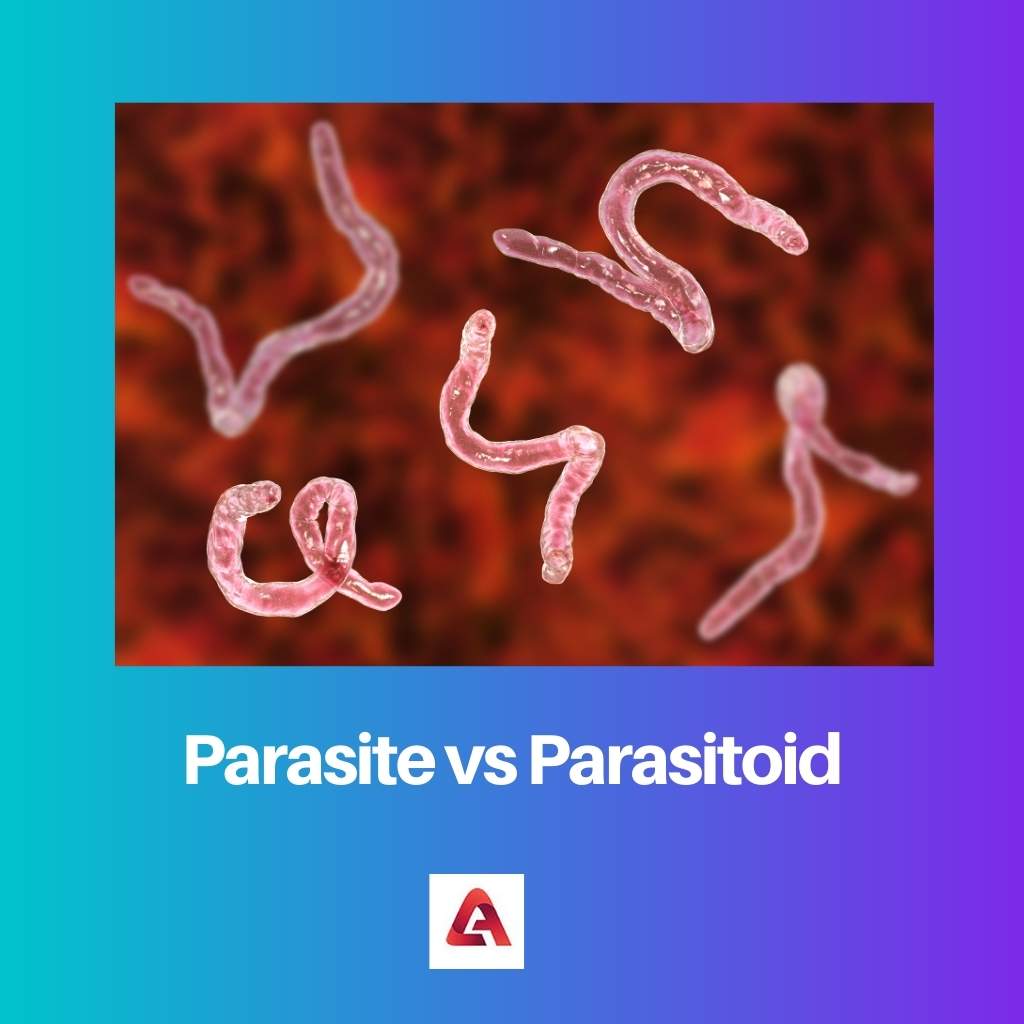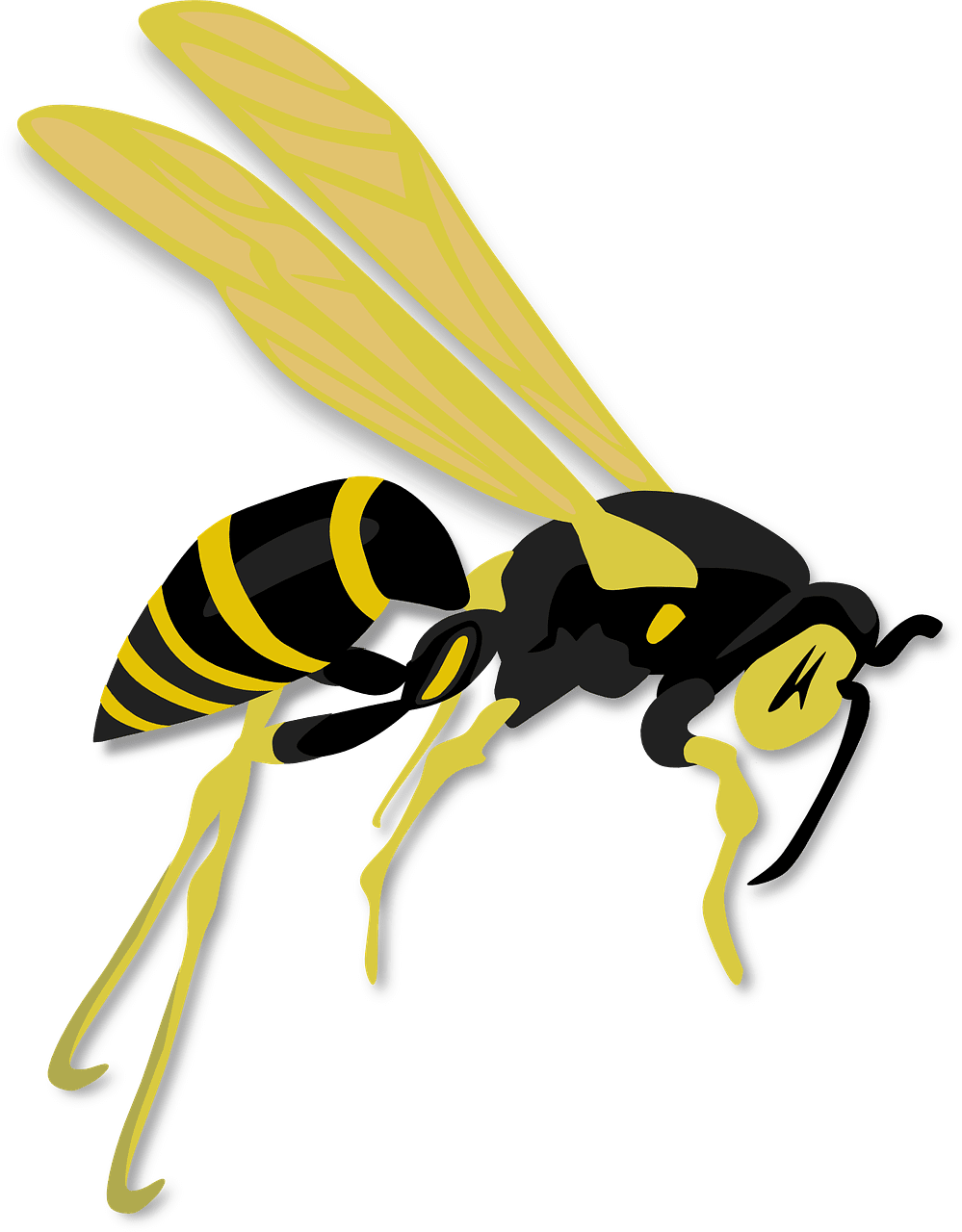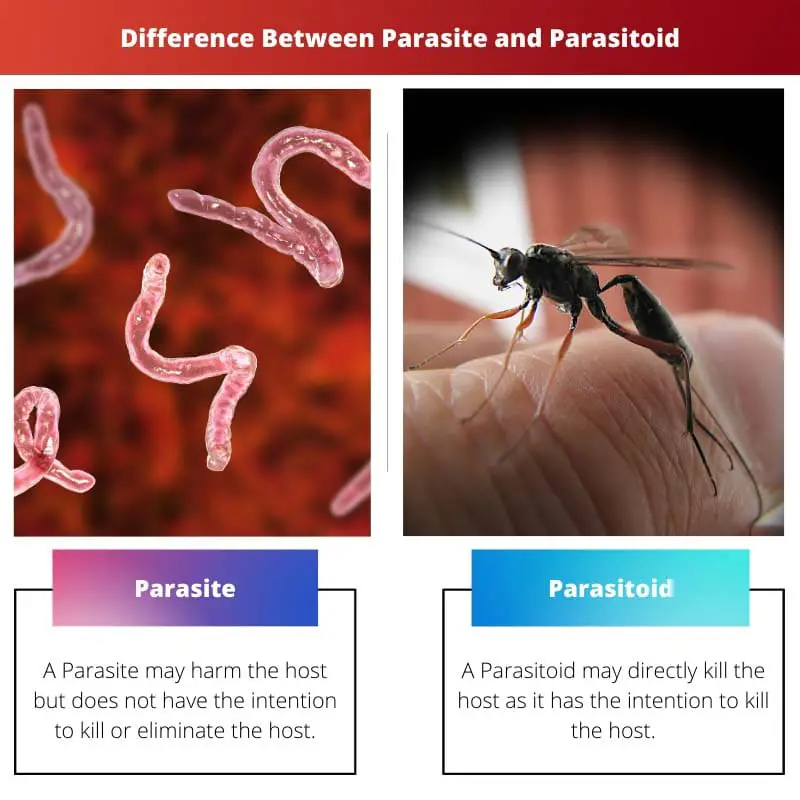Several organisms are dependent on the host for their survival. Two such organisms parasites and parasitoids have a large number of similarities and differences.
People always tend to get confused between these two organisms as both of them sound almost the same and have numerous similarities.
Key Takeaways
- Parasites live in or on a host organism and cause harm, while parasitoids ultimately kill their host.
- Parasites don’t cause immediate death, allowing the host to live and support them, whereas parasitoids rely on the host’s death for reproduction.
- Parasites include a variety of organisms, such as bacteria, viruses, and worms, while parasitoids are primarily insects, such as wasps and flies.
Parasite vs Parasitoid
A parasite is an organism that hosts another organism to derive nutrients for growth and multiplication at the cost of the host organism. Parasites like tapeworms and leeches may host on plants, animals or humans. A parasitoid is an organism that hosts another organism, resulting in the death of the host. Beetles and wasps are parasitoids that host only insects with the intention of killing them.

A parasite refers to an organism that resides within the host and thus depends on the host for its survival. The parasite is unable to prosper, develop, and breed without the presence of its host.
It also injures the host but does not plan to kill or destroy the host. A parasite that resides within the host is referred to as endoparasite. On the other hand, ectoparasite refers to a form of the parasite that resides within the host.
Parasitoid refers to an organism that survives and grows with the help of its host, but at last, it just kills its host. Parasitoid also derives all of its needs from its host, like shelter, food, and growth.
A parasitoid has a single host, which makes it very specific.
Comparison Table
| Parameters of Comparison | Parasite | Parasitoid |
|---|---|---|
| Relationship with Host | A Parasite may harm the host but does not have the intention to kill or eliminate the host. | A Parasitoid may directly kill the host as it has the intention to kill the host. |
| Host Organism Type | Almost all the kingdoms of life namely plant, animals, and humans may serve as the host of parasites. | Only the species and types of insects can be the host of parasitoids. |
| Specificity | Parasitic synergy is very specific and predictable. | The intercommunication and synergy are not very specific and predictable. |
| Area of survival | Almost all parasites live within or outside the body of the organism which is the host. | Almost all parasitoids reside and spend their entire lifespan within the body of the organism which is the host. |
| Definition | Parasites refer to an organism that is highly reliant on its host for achieving more than one claim in its entire lifecycle. | Parasitoids refer to an organism that is reliant entirely and completely on its host for its survival. |
| Examples | Leeches, fleas, and tapeworms are examples of parasites. | Beetles and wasps are types of parasitoids. |
What is Parasite?
A parasite refers to an organism that lives within or outside the other organism known as the host. It may or may not kill the host and just make it injured.
Parasites have a large number of characteristics that help the parasite to be in synchronization with the lifestyle of the parasite.
One of the major features of parasites is that they prevail in almost every kingdom of life, namely animals, plants, and humans.
Endoparasites refer to the parasites that reside outside the body of the host. On the other hand, Ectoparasites refer to the parasites that reside within the body of the host.
Tapeworms, leeches, mosquitos, and fleas are the most popular types of parasites.
Parasitic plants collect the required minerals and nutrients for their growth from different plants. All the parasites become reliable for one or the other purpose on their host.
The parasite is comparatively smaller in size when compared to its host. It does not kill its host but may make it injured.
One of the most important concepts is called parasitism which means an established relationship between two species of the life kingdom in which one of the organisms helps the other to prosper, grow, and live its entire life successfully.

What is Parasitoid?
A parasitoid refers to an organism that resides within the host and ultimately kills it. The major examples of parasitoids are wasps, beetles, and a few wing insects.
Parasitoids survive on only a single host; hence, they are extremely host-particular, which eventually makes them more prone to a biological control mechanism.
During the time of breeding and fertilization, the parasitoids give multiple eggs, which in turn convert into multiple larvae.
While talking about larval parasitoids, they kill only one of the hosts during their development and do not migrate in search of killing the others.
Mostly, parasitoids are found in insect types known as the Endopterygota. This word came into existence in the year 1913 and was coined by a writer known as William Morton Wheeler.
There are two types of parasitoids, depending on the area where they reside, known as Endoparasitoid and Ectoparasitoid.

Main Differences Between Parasite and Parasitoid
- A parasite may harm the host but may not kill the host, whereas a parasitoid always kills the host after it derives all the necessary benefits from it.
- Parasites are present in almost every kingdom of life, like plants, animals, and humans. On the other hand, parasitoids are present in only insect kingdoms and species.
- Parasites have only one host hence it is very specific, whereas parasites may have more than one host thus their specificity is low.
- Parasites lie on or inside the body of the host. On the other hand, parasitoid lies only inside the body of the host.
- Leeches, tapeworms, and fleas are types of parasites. On the other hand, the major types of parasitoids are Beetles and wasps.
